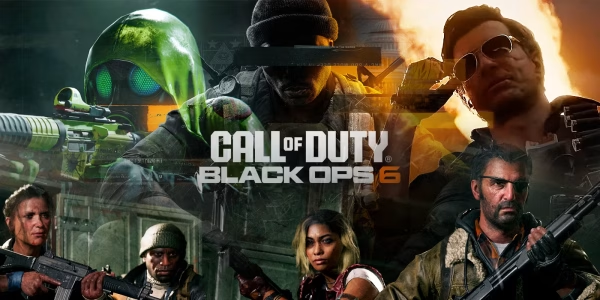Popular Now
Introduction
Call of Duty: Black Ops 6 has been lauded for its engaging campaign, innovative multiplayer features, and the return of the beloved Zombies mode. However, one aspect that has stirred significant debate among players is the game's always-online requirement, even for single-player content. This article delves deep into this specific issue, exploring its implications on gameplay, player experience, and the broader gaming community.
1. Understanding the Always-Online Requirement
Definition and Implementation
The always-online requirement mandates that players maintain a constant internet connection to access any part of Black Ops 6, including the single-player campaign. This approach is not new in the gaming industry, but its application in Black Ops 6 has raised eyebrows due to its pervasive nature.
Developer's Perspective
From the developers' standpoint, this requirement aims to integrate features like real-time updates, anti-cheat mechanisms, and seamless transitions between game modes. It also facilitates data collection for analytics and player behavior tracking.

2. Impact on Single-Player Experience
Disruptions Due to Connectivity Issues
Players have reported that intermittent internet connections lead to game stuttering, lagging, or even abrupt disconnections during the campaign. Such disruptions can break immersion and frustrate players, especially during critical mission moments.
Checkpoint System Limitations
While the game incorporates a checkpoint system, its reliability is questionable. Players have experienced scenarios where progress is lost due to disconnections, forcing them to replay challenging sections, thereby diminishing the overall enjoyment.
3. Community Feedback and Reactions
Player Sentiments
The gaming community has expressed dissatisfaction with the always-online mandate. Forums and social media platforms are rife with complaints about the unnecessary nature of this requirement for single-player content.
Calls for Offline Mode
Many players advocate for an optional offline mode, emphasizing that not all gamers have access to stable internet connections. They argue that single-player campaigns should be accessible without mandatory online connectivity.
4. Comparison with Previous Titles
Past Installments
Earlier entries in the Call of Duty franchise allowed offline access to single-player campaigns. The shift in Black Ops 6 marks a significant departure from this tradition, leading to questions about the necessity and benefits of such a change.
Industry Trends
While some modern games adopt always-online models, they often pertain to live-service or multiplayer-centric titles. Applying this model to a predominantly single-player experience is relatively uncommon and controversial.

5. Technical Justifications and Criticisms
Anti-Cheat and Updates
Developers argue that constant connectivity helps combat cheating and ensures players have the latest updates. However, critics point out that these benefits are more pertinent to multiplayer modes and less so to single-player campaigns.
Data Collection Concerns
The always-online model facilitates extensive data collection, raising privacy concerns among players. The lack of transparency about data usage further exacerbates these apprehensions.
6. Economic and Accessibility Implications
Barrier for Players with Limited Internet Access
Mandatory online connectivity can exclude players in regions with unreliable internet infrastructure, effectively limiting the game's accessibility and market reach.
Potential Financial Impact
Negative feedback and reduced accessibility may influence sales and the game's reputation, potentially affecting the franchise's long-term profitability and player base loyalty.
7. Legal and Ethical Considerations
Consumer Rights
Enforcing always-online requirements for single-player content may infringe upon consumer rights, especially if players are unable to access purchased content due to connectivity issues.
Ethical Debates
The ethicality of restricting access to single-player content based on internet connectivity is a topic of debate, with arguments centered around fairness and consumer autonomy.

8. Developer Responses and Future Outlook
Acknowledgment of Issues
In response to the backlash, developers have acknowledged the concerns and are reportedly exploring solutions to mitigate the negative impact of the always-online requirement.
Potential Revisions
There is speculation about the introduction of an offline mode or adjustments to the current system to enhance player experience and address accessibility issues.
9. Broader Implications for the Gaming Industry
Influence on Future Game Designs
The controversy surrounding Black Ops 6's always-online model may influence future game development decisions, encouraging a reevaluation of connectivity requirements for single-player content.
Player Expectations
This situation underscores the importance of aligning game features with player expectations, particularly regarding accessibility and autonomy in gameplay.
10. Recommendations for Players and Developers
For Players
-
Provide constructive feedback through official channels to influence potential changes.
-
Explore community forums for potential workarounds or solutions to connectivity issues.
For Developers
-
Consider implementing an optional offline mode for single-player content.
-
Enhance transparency regarding data collection and usage.
-
Engage with the community to address concerns and improve player satisfaction.
Conclusion
The always-online requirement in Call of Duty: Black Ops 6 has sparked significant debate, highlighting the delicate balance between technological advancements and player accessibility. While the intention behind this model may stem from a desire to enhance security and provide seamless updates, its implementation in single-player content raises valid concerns. Addressing these issues is crucial for maintaining player trust and ensuring the franchise's continued success.
















